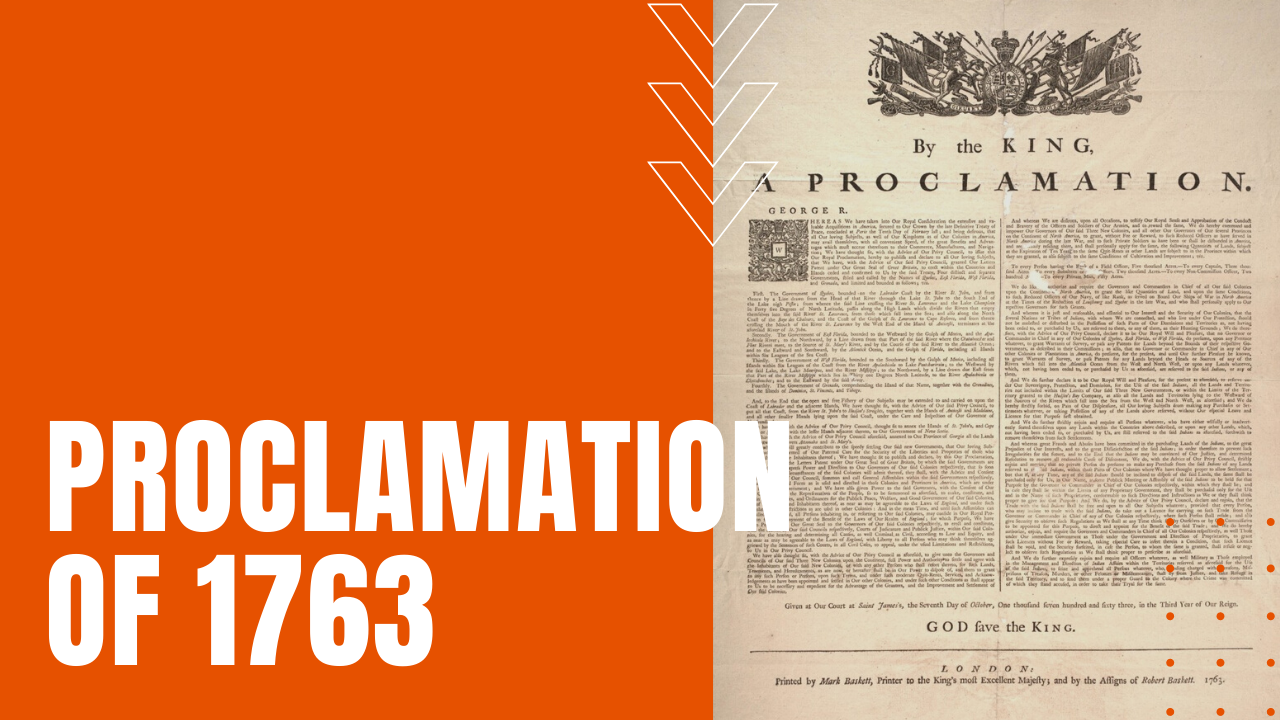What Was The Proclamation of 1763?

Native Americans and European Immigrants Clash
After the Treaty of Paris formally ended the French and Indian War in America, which was a theater in the Seven Years’ War fought on five continents between the British and the French. Indian on white and white on Indian violence was at a high point after war’s end, only to be heightened when Ottawa Chief Pontiac formed a loose alliance with other tribes resistant to British rule in the Great Lakes Region. Pontiac’s War—sometimes called Pontiac’s Rebellion or Pontiac’s Conspiracy—began in May of 1763, witnessing the destruction of eight British forts at the expense of many hundreds of soldiers, civilians and Native Americans killed or captured.
Royal Proclamation of 1763
In response, the British Empire began to reign in control over her autonomous and largely westward expanding colonies, leading to King George the 3rd’s Proclamation of 1763, which stated that all lands west of the Appalachian Mountains were here and henceforth off-limits to settlers or colonial governments.
Issued on October 7th, 1763 and deemed by royal decree to be a temporary restriction, the Proclamation of 1763 was the first law issued by the British that applied to all 13 colonies, at the same time establishing four new provinces, which included Quebec, West and East Florida and Grenada in the Windward Islands, as well as a vast British-controlled Indian reservation west of the Appalachians, from south Hudson Bay to just north of the Floridas.
The proclamation also granted land to British and colonial soldiers who had fought in the Seven Years’ War, while limiting any agreements or interaction with Native American tribes west of the Appalachians to either licensed traders or representatives of the British government.
Why Did The Proclamation of 1763 Anger Colonists?
King George the 3rd’s proclamation proved to be enormously offensive to colonists and their desire for good farmland, as well as a perceived heavy-handed interference in each colony’s sense of self-governance.
As a result, the Proclamation of 1763 became one of the first significant triggers leading up to the Revolutionary War, as well as widely disregarded by settlers and trappers alike. Following America’s victory over the British, westward expansion would begin anew with far more vigor than before, leading to ever-increasing violence between European settlers and Native Americans, persisting until the end of the American Indian Wars in 1924.
